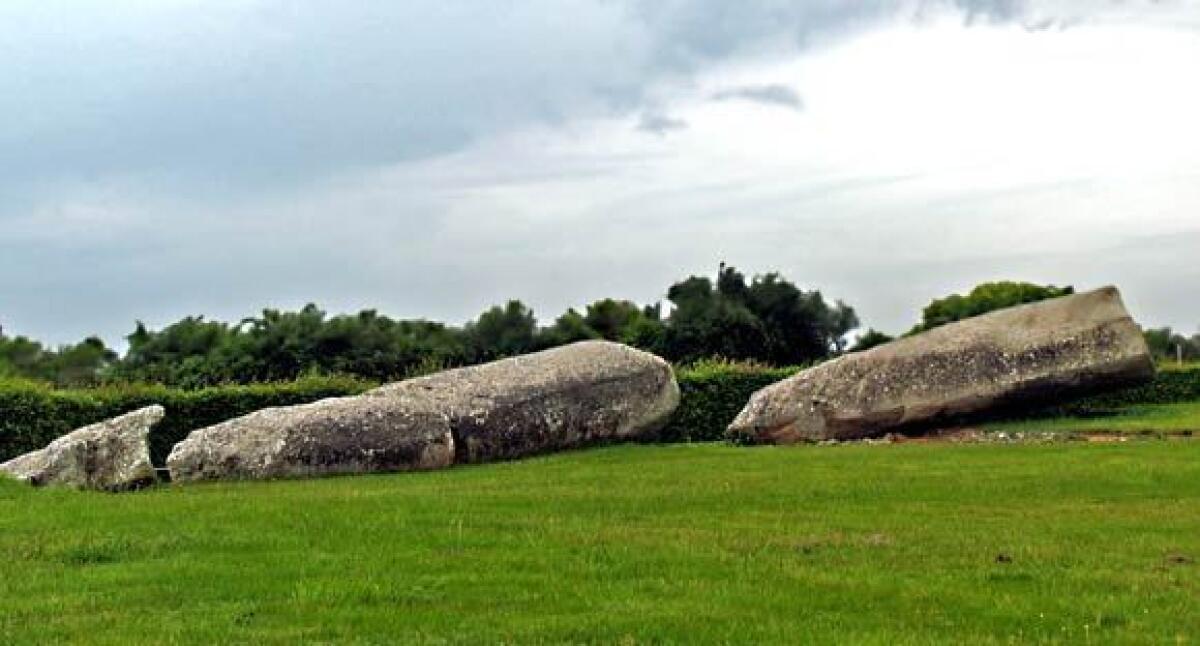The lifespan of 23 words

When researchers from England’s University of Reading recently announced they had discovered 23 “ultraconserved” words — words, that is, which appear to have come down from an ancestral language 15,000 years old — I couldn’t help thinking of John D’Agata and his 2010 book “About a Mountain.”
There, D’Agata writes of the difficulty in establishing an adequate warning system for Nevada’s Yucca Mountain, where nuclear waste will be stored (theoretically, anyway) for 10,000 years. Who knows, he wonders, what language then will sound like? Will there be any common markers, any way to talk to each other, metaphorically or otherwise, over such a span of time?
Language, after all, is in a constant state of evolution: Words and usage change, specific tongues and dialects go extinct. In a landscape this conditional, D’Agata argues, the only thing we know is that we know nothing, that both past and future are a void across which communication is fleeting when it is possible at all.
One of the most vivid parts of D’Agata’s book is his account of a panel commissioned to imagine what, at Yucca Mountain, such communication might look like. Among their ideas? Construct a wasteland of black basalt around the storage site, “unwelcoming and uninhabitable” … or create “an echoing aural effect from a series of stone sculptures that would be carved to emit a single pitch in the wind.”
The Reading findings point to another conclusion, which is that certain core words, core concepts, have always been with us, that they are the building blocks of not just language but also society. In that sense, the 23 words are instructive, both for how simple they are, and also how resonant: blunt, unadorned words, concrete, descriptive, but able to encompass more abstract relationships, as well.
For the record, here is the list: thou, I, not, that, we, to give, who, this, what, man/male, ye, old, mother, to hear, hand, fire, to pull, black, to flow, bark, ashes, to spit, worm. What’s interesting is that so many of these words have to do with direct engagement — I, thou, we, ye — the language of a back-and-forth. This suggests that, even 15,000 years ago, we were already using language for negotiation, as a way to bridge the differences between us, to think about (and build?) community.
Some words seem obvious and elemental: fire, hand, give, mother, man. Others are more surprising on the surface, but perhaps not so much when you consider them a bit. Spit is one of those great words that can express an action or an emotion; we spit to get rid of a bitter taste. And worm, which on the one hand seems the most unlikely word here, is in actuality the most universal — if nothing else, it is the common fate of every one of us to be eaten by the creatures it represents.
I don’t know whether that’s what our linguistic ancestors had in mind, but looking at this list, I feel a kind of kinship, at the level of our shared humanity. 15,000 years is a long time — far longer than both the 10,000-year communication gap at Yucca Mountain and also what was previously thought to be the lifespan of a language (9,000 years or so) — but not long enough, apparently, to sever us from the core connection, the words that give shape to who we are.
ALSO:
An artisanal Bible: A handwritten copy, four years in the making
Harlan Ellison, Isaac Asimov, Studs Terkel together in 1982 video
More to Read
Sign up for our Book Club newsletter
Get the latest news, events and more from the Los Angeles Times Book Club, and help us get L.A. reading and talking.
You may occasionally receive promotional content from the Los Angeles Times.









